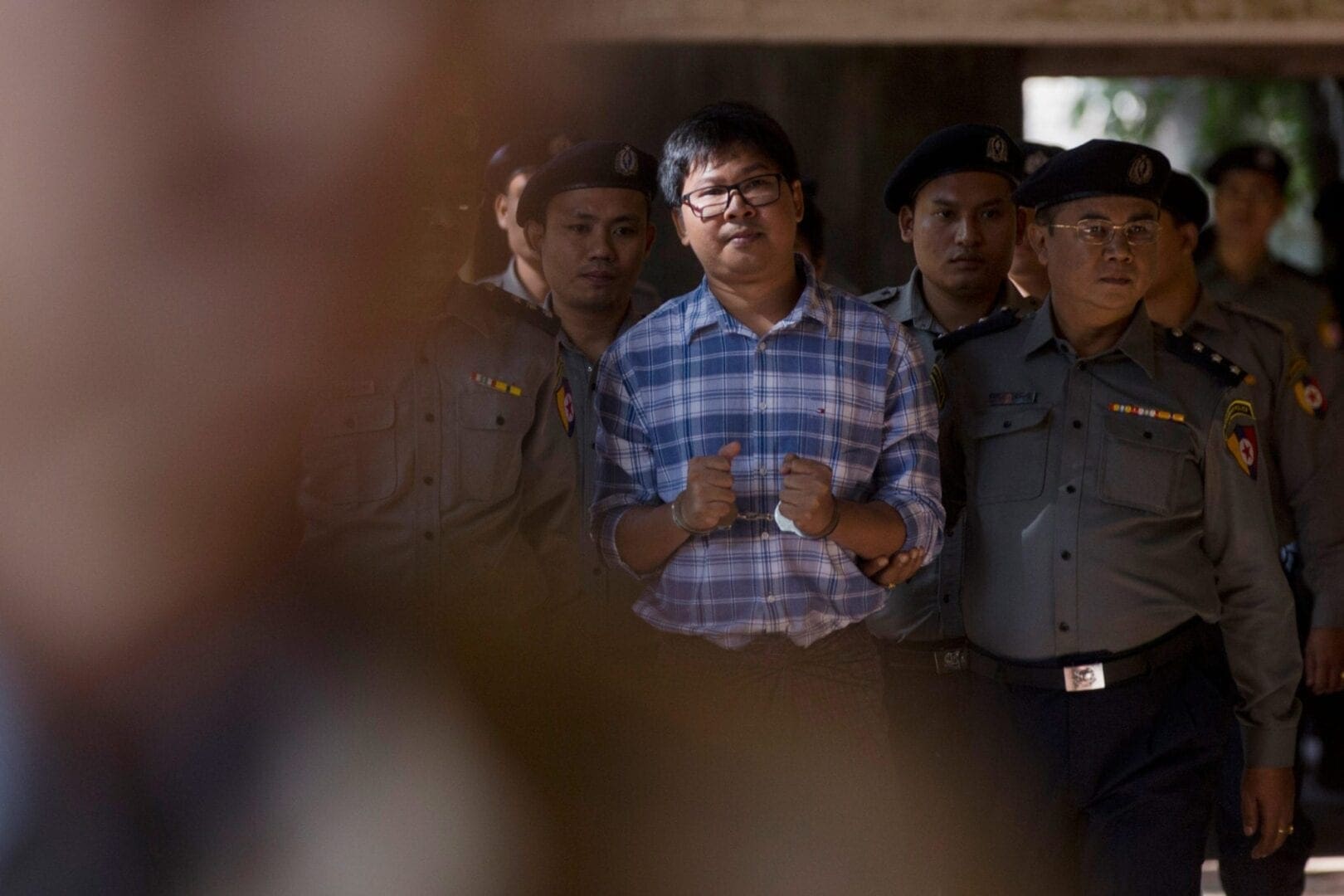Responding to today’s decision by a Yangon court to formally charge Reuters journalists, Wa Lone and Kyaw Soe Oo, with breaching the country’s Official Secrets Act, Tirana Hassan, Amnesty International’s Director of Crisis Response, said:
“This is a black day for press freedom in Myanmar. The court’s decision to proceed with this farcical, politically motivated case has deeply troubling and far-reaching implications for independent journalism in the country.
“In their investigations of military operations in Rakhine State, Wa Lone and Kyaw Soe Oo were simply doing what journalists are meant to do – expose the truth and hold the powerful to account. Charging them under this draconian law – even after widespread national and international condemnation – is a clear sign that the authorities are intent on silencing critical voices. It also serves notice to other journalists working in the country that speaking out comes with serious consequences.
“The decision is further evidence of the worrying regression of press freedom in Myanmar over recent years. Threats, intimidation and even jail time are daily hazards of the job for the country’s journalists. Independent journalism and the right to freedom of expression must be protected, starting with the immediate and unconditional release of Wa Lone and Kyaw Soe Oo.”
Background
Wa Lone and Kyaw Soe Oo were arrested in Yangon, Myanmar’s main city, on 12 December 2017. At the time, the two men had been investigating military operations in northern Rakhine State. These operations were marked by crimes against humanity targeting the Rohingya population, including deportation, unlawful killings, rape, torture and burning of homes and villages.
The two journalists were held incommunicado for two weeks before being transferred to Yangon’s Insein prison. The Official Secrets Act – one of a number of repressive laws in Myanmar – carries a maximum sentence of 14 years in prison.

